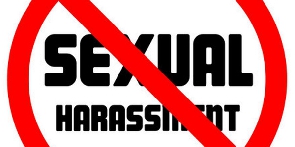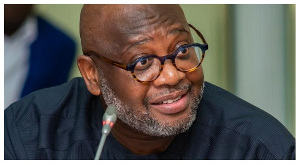The Network for Women’s Rights in Ghana (NETRIGHT) has called on the government to ratify ILO Convention 190 to recognise the rights of everyone and eliminate workplace violence and harassment, including gender-based violence.
The Convention defines “violence and harassment” in the world of work as a range of unacceptable behaviours and practices, or threats thereof, whether a single occurrence or repeated, that aim at, result in, or are likely to result in physical, psychological, sexual, or economic harm, and includes gender-based violence and harassment.
“Gender-based violence and harassment” on the other hand is violence and harassment directed at persons because of their sex or gender, or affecting persons of a particular sex or gender disproportionately, and includes sexual harassment.
Ms Bernice Sam, a Gender Consultant, said recognising that violence and harassment in the world of work could constitute a human rights violation or abuse, and was a threat to equal opportunities, was unacceptable and incompatible with decent work according to the convention.
Together with members of NETRIGHT, she made the call at the ‘End of Year Review’ of the network in Accra to review their activities, achievements, and failures within the year.
She said violence and harassment at work affects a person’s psychological, physical, and sexual health, dignity, family, and social environment.
Ms Sam explained that gender gap among the working population was a global crisis as a result of structural barriers and that women were often left behind because of their poor educational levels.
Speaking about the effects of COVID-19, she said the rate of poverty among the working class increased from 6.7 to 7.2 percent from 2019 to 2020, thereby plunging eight million more people into poverty worldwide.
The Gender Consultant also bemoaned the poor implementation of the Domestic Violence Act, especially the “Domestic Violence Fund” and called for its review in line with the Sustainable Development Goals to protect victims of domestic violence and secure their welfare.
She said the Intestate Succession Law needed a revision to be more problem-solving and also called for the passage of the Affirmative Action Bill into law to give women significant representation in decision-making processes.
Ms Sam said women suffered from reduced or no income at all to border closures and lockdowns, among others, during the active periods of COVID-19.
A number of them and young ladies were also subjected to more domestic violence and sexual harassment and abuse according to reports from the Domestic Violence and Victim Support Unit, she said.
Ms Sam, speaking about security and its effects on women, said Africa recorded 346 terrorist attacks in the first quarter of 2022, with 49 percent of them occurring in West Africa alone.
She said women and girls during terrorist attacks faced challenges like human trafficking, sexual harassment, and other forms of abuse.
The absence of a Gender Minister for a long period had hugely affected the welfare of women, she said, and called on the Gender Advisor to the President to establish a strong connection with women and be actively involved in the change-making movement.
She called on the government to fix the fuel prices and skyrocketing inflation in the country to reduce the burden it had put on the population.
Dr Charity Binka, the Executive Director of Women, Media and Change, a nongovernmental organisation, asked all women to confidently take up equal positions at decision making tables as men, and contribute their quota towards development.
“Do not be shy or scared, build yourself and go take your positions. Let them know that you are also entitled to it and have come for your seat,” she said.
Health News of Monday, 12 December 2022
Source: GNA

















